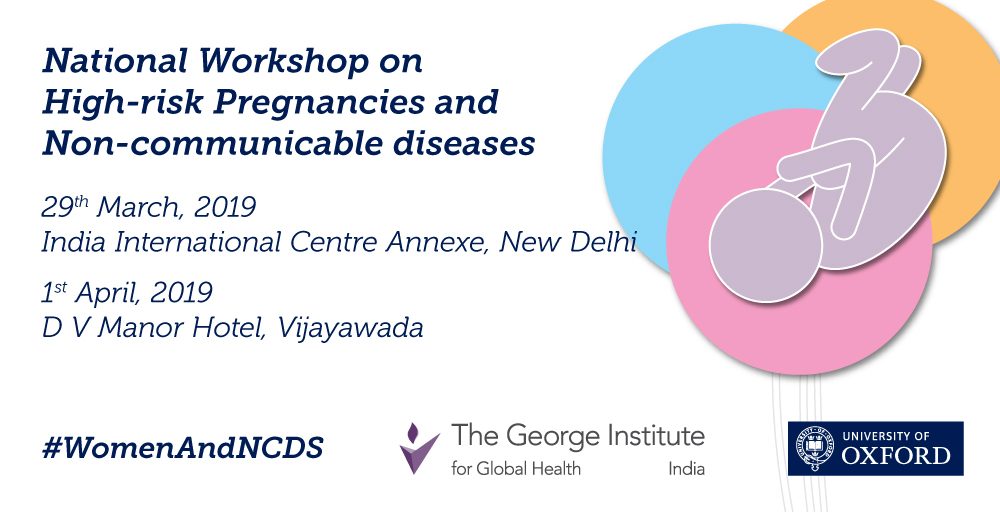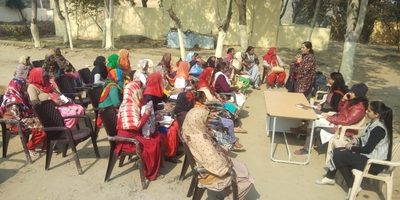
National workshop on high-risk pregnancies and NCDs

Non-communicable diseases (NCDs) are the leading causes of death in women in India, with the prevalence of cardiometabolic disorders, such as ischaemic heart disease, stroke and type 2 diabetes increasing.
Download the Policy and research recommendations report on high-risk pregnancies and NCDs in India from the workshops (PDF 13.4 MB)
Women in rural India are particularly vulnerable due to limited knowledge and healthcare access. High-risk conditions detected during pregnancy, such as hypertensive disorders and gestational diabetes mellitus (GDM) increase the risk of cardiometabolic disease in the years following birth. Innovative solutions are required to improve the detection and management of high-risk conditions during pregnancy and introduce strategies for effective prevention after birth.
The George Institute have developed the SMART Health Program to improve screening and management of NCDs in non-pregnant adults. SMART Health is a digital clinical decision support system supporting task-sharing and communication between community health workers and primary care doctors. This program has been implemented at scale in India and internationally, targeting cardiovascular risk factors, diabetes, tuberculosis, HIV and mental health.
We have adapted this approach to address gaps in pregnancy care experienced by pregnant women in rural Indian communities. The proposed intervention will: (i) support ASHA workers and ANMs to identify high-risk women; (ii) generate a risk category for all pregnant women, with automatic electronic primary care referral for high-risk women; and (iii) target structured, postnatal maternal health assessments and health promotion to high-risk women following birth.
The primary aims of SMART Health Pregnancy are to:
- Reduce maternal and perinatal mortality; and
- Promote lifelong health and wellbeing in high-risk women.
Before further development it is essential to understand where this intervention may fit within the context of other innovations in this sector, current priorities in high-risk pregnancy care and NCD prevention, and establish a network of key stakeholders to move the concept forward.
Objectives for the workshops:
- Introduce the SMART Health programme of work and SMART Health Pregnancy concept
- Identify current challenges and priorities in high-risk pregnancy and NCDs management in India and strategies for program integration
- Discuss health system challenges and develop a roadmap of the steps needed for future implementation








